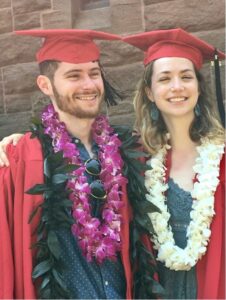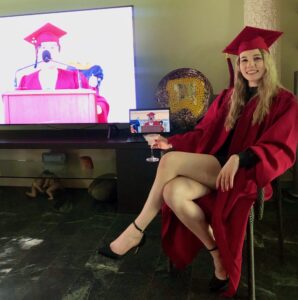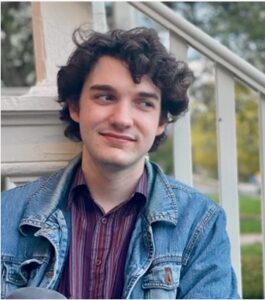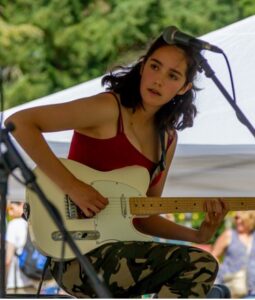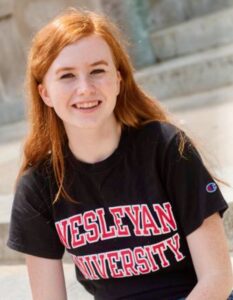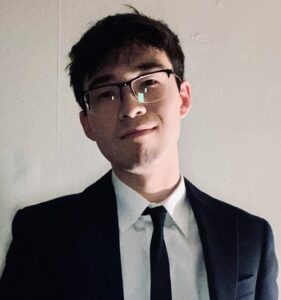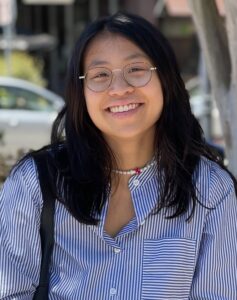
How Studying Abroad Helped me Develop a Cross Cultural Understanding
by Lily Davis ’20
Ever since I was little, I have wanted to explore the world. Whenever an adult would ask me what I wanted to be when I grew up, I never really had an answer, except that I wanted to do something where I could travel, get to know different cultures, and feel independent and free. These desires dissipated a bit as I grew up and came to know the importance of a career that provides financial security and that does something to help others, but still I carried with me an eagerness to live in another country and to challenge myself in learning a new language and a new way of living. Now, as I look forward to a future working in psychology, I reflect upon my experience studying abroad in Hamburg, Germany, and how it exposed me to a new and exciting part of the world and provided me with a cross cultural perspective on mental health work.
When I arrived at Wesleyan University in 2016, I thought I had put all language-learning behind me. When I graduated high school, I wanted to get away from every bad German class I had been forced to take there: classes where we skipped important grammar skills and vocabulary, classes where I watched all eight Harry Potter movies dubbed in German with the English subtitles turned on. These classes discouraged me from learning German because they made me feel like I was constantly struggling without any real progress and without feeling that I could hold even the simplest of conversations.
But something surprising happened over the course of my first semester at Wesleyan: I watched my soon-to-be best friend, Hannah, become inspired by her beginner German course. She would come back from every class telling me how much fun it was and how much she was learning in such a short amount of time. I decided then that I would give German another go and enrolled in a language course for the second semester of my freshman year. I had always wanted to study abroad during my time in college, so I decided that this would be the way I would do it. I would study German hard for two and a half years and then go abroad during the spring semester of my Junior year. And you know what? I did just that.
In March of 2019, I flew across the ocean to Hamburg, Germany, to begin my semester abroad. The German university course schedule is set up slightly different from that of American universities, so I ended up taking four courses, each of which only met once a week. This freed up a lot of out-of-the-classroom time that I would not normally have had while studying at Wesleyan, and I was adamant about finding something meaningful to fill that time.
One of the things I was worried about when I decided to study abroad in Hamburg was losing the opportunity to apply for psychology internships and research positions for the summer of 2019. Because the University of Hamburg semester schedule continued into July, I had very little time after taking my final exams before I would be beginning my senior year at the end of August. As a psychology major, post-graduate fellowships and graduate school programs are very selective, and summer research experiences and internships help to make a student look like a competitive candidate. Because of the timeline of the Hamburg study abroad program, I was worried about not being able to gain that kind of experience with my shortened summer break. In an effort to find something to do during my free time, I reached out to my German Studies Professor at Wesleyan, Professor Iris Bork, and asked if she knew of any psychology-related internships or volunteer work that I could do in Hamburg. I was in luck! Frau Bork wrote me back to tell me that her father works as the treasurer for an artists’ group in Hamburg called Die Schlumper.
Die Schlumper was founded in 1980 by a Hamburg-native artist named Rolf Laute who was inspired by the art he saw being produced by the residents of the Alsterdorf institute for the handicapped. The name, Die Schlumper, comes from the name of the street on which the artists’ first studio was located: Beim Schlump.[1] Today, Die Schlumper is run by the artistic director and daughter of Rolf Laute, Anna Pongs-Laute, and includes around 30 handicapped adults who come together almost every day to work on different artistic endeavors, from charcoal drawing to acrylic painting to crocheting to linoleum printmaking. The mission of Die Schlumper is to provide a space where disabled adults can come together to create artistic works freely and independently. There is an inspiring atmosphere at the studio, one of community and creativity as well as a sense of artistic seriousness. In 1985, Die Schlumper became sponsored by an organization called “Freunde der Schlumper” (in English, “Friends of the Schlumpers) and the by the Hamburg Ministry for Labor, Health, and Social Welfare in 1993, and now it has a permanent studio and gallery in an old Hamburg meatpacking hall.[2]
Another project associated with Die Schlumper is called Die Schule der Schlumper (in English: The Schlumper School). This project began in 1995 as an idea to decorate the Louise Schroeder School in the Altona district of Hamburg.[3] This project was born as a collaboration between Die Schlumper artists and the students of this school. Named after Louise Dorothea Schroeder, an early twentieth-century politician for the Social Democratic Party of Germany, the Louise Schroeder School is a primary school for both handicapped and neurotypical students.[4] As part of Die Schule der Schlumper, school children visit Die Schlumper studio, working both independently and with the adult artists on various artistic projects.[5] This program not only allows the students to take part in artistic work, but it also exposes them to mentally and physically disabled individuals in an effort to reduce the negative stigma that surrounds them. Die Schule der Schlumper is a very important part of Die Schlumper program and works to integrate the artists’ work into the wider Hamburg community.
In 2002, Die Schlumper began a partnership with the Alsterdorf Evangelical Foundation. Alsterdorf provides aid to people with varying different disabilities. A quote from their website says, “Unser Ziel ist, dass jeder Mensch in seinem Sozialraum ein selbstbestimmtes und eigenständiges Leben führen kann. Dazu gehört auch die gleichberechtigte Teilnahme am gesellschaftlichen Leben im Stadtteil” (Our goal is that every person can lead a self-determined and independent life in their social space. This involves equitable participation in social life in the community).[6] This partnership with the Alsterdorf Evangelical Foundation provides financial support to Die Schlumper so that the artists can continue to work in their studio.
Die Schlumper is a unique organization in that it provides a space for handicapped adults to work every weekday on independent artistic projects which are then displayed in various gallery exhibits and sold to customers. The work produced by the artists of Die Schlumper is taken very seriously in the Hamburg artist community and beyond, and it receives the same treatment as the work of any other artist. The treatment of Die Schlumper artists’ work is an incredible demonstration of the power of the legitimization and authentication of art. Die Schlumper strives towards the destigmatization of disability through the respect and seriousness with which the organization handles their artists’ work.
Around the world, disabled people are mistreated, ignored, and ridiculed. An article titled “America Still Leaves the Disabled Behind” outlines the ways that disabled people are discriminated against in the United States.[7] The United States has made a lot of progress in policymaking to protect against this discrimination. The Americans with Disabilities Act was passed in 1990 and “prohibits discrimination against people with disabilities and guarantees equal opportunities for individuals with disabilities in employment, transportation, public accommodations, state and local government services, and telecommunications.”[8] But still, there continues to be existing societal ideologies that see disabled people as lesser than abled people. There are similar articles circulating through the internet about the treatment of disabled people all across Europe, but there has been an obvious effort more recently to destigmatize disability in Germany. A Deutsche Welle article from March of this year stated that German lawmakers are working to rewrite terms that are used in the penal code to talk about disability.[9] Terms such as “mentally perverted” and “mentally weak” still exist in German penal code to describe people with mental handicaps, and now there is an effort being made to replace these terms and others like them with more inclusive and sensitive language. Destigmatization is such an important part of disability inclusivity and is necessary for changing the way the world thinks about disabled people. Part of the work of Die Schlumper follows this mission. Die Schlumper as an organization treats their artists’ work with the seriousness and authenticity deserved by any and all artists, regardless of disability. It supports the idea that all people and all artwork should be treated with kindness and inclusivity.
In 2014, Die Schlumper opened an inclusive art exhibit in which they displayed artwork made by members of the group alongside the work of neurotypical artists from Hamburg. This group exhibition was titled Outdoor and showed artwork that depicted themes of the outdoors, including scenes in nature and in urban environments.[10] Here, the works of Die Schlumper artists were displayed side by side with other international artists in a space where they could be enjoyed and respected by all. This is a beautiful example of Die Schlumper’s efforts to work with their community and to hold the art of their members up to the same standard as work by all other artists.
One thing among many that makes Die Schlumper such a special and important organization is its global reach. Around the world, there are projects inspired by Die Schlumper, from the United States to Australia to Italy. Project Onward is an art program that began in Chicago in 2004. It provides a space for adult artists with mental illness and other mental and physical disabilities to create and exhibit their art. Project Onward includes very different types of artists, from self-taught artists who have autism to formally-trained artists who have bipolar disorder.[11] It is very similar to Die Schlumper in its mission and values and currently serves around 60 artists. A statement from the Project Onward website claims that “[they] exist to give artists with disabilities a ‘visual voice’ to tell their stories and change the perceptions of the world.”[12]
Down in the Southern Hemisphere, Studio A based in Sydney, Australia, is another program that supports the artistic endeavors of intellectually disabled people. Studio A serves a community of artists by offering studio and exhibit spaces and by working towards destigmatizing disability and increasing inclusion and diversity in the social and professional spheres.[13]
Die Schlumper has also exhibited its artists’ work in cities around the world. In 2008, Die Schlumper opened an exhibit in Galleria d’Arte Moderna e Contemporanea (the National Gallery of Modern and Contemporary Art) in San Gimignano, Italy, titled “Die Schlumper in Italien” (“Die Schlumper in Italy”). In 2003, Die Schlumper opened an exhibit in Chicago that displayed its own members’ artwork together with art from other international programs for people with disabilities.[14] This exhibit was titled “Coming Together,” and it ran for three months at the Chicago Cultural Center.[15] “Die Schlumper in Italy” and “Coming Together” presented the artwork of Die Schlumper artists to an international audience and increased awareness of disabled artists. Project Onward, Studio A, and Die Schlumper’s international exhibits suggest that the mission and values of Die Schlumper have travelled from Hamburg to different locations around the globe, inspiring organizations and programs to follow suit and to recognize the beauty of art created by disabled people who have historically been ignored, marginalized, and not taken seriously.
After spending about a month getting to know the city of Hamburg and working on my German, I met with Frau Bork and her father to attend a meeting with Anna Pongs-Laute at Die Schlumper. Anna showed me around the studio where the artists worked either at large, communal tables or in individual stalls.
While in Die Schlumper studio, there is always something to look at. Beautiful works of art adorn every wall, and there are constantly people moving about, gathering more materials for their next project or engaged in lengthy conversations about what they did over the weekend. A sense of love and community always permeated throughout the studio, and I could sense it whenever I stepped through the doors. Every morning the staff and the artists of Die Schlumper would sit together for breakfast and coffee or tea before each making their way to the workstation to begin their day. I would wander around the studio, refilling paint cans, fetching more water, sharpening pencils, and making conversation whenever the opportunity arose. There was one older man who spent his time drawing large colorful scenes with oil crayons. He would always greet me excitedly and talk about what food I had been eating recently; how much it cost, what was in season, what my favorite was. One woman would often sit quietly, sketching out portraits in pencil before going over them in acrylic paint while I prompted her about how she was and how her project was coming along. As a student learning to speak German, something I found extremely helpful during my internship at Die Schlumper was the time and space that it allowed me to strike up casual and simple conversations with the artists there. While I was often intimidated and nervous about speaking in German, at Die Schlumper I found that I could actively participate in conversations about food, painting, or my weekend, which helped me to make strides in my conversational German skills. Whenever I stumbled or misunderstood something while speaking to the artists, I was not laughed at, and there was no big deal made, rather, the conversation moved right along. Also, as a student living in a big city for six months, I did not find it very easy to form relationships. At Die Schlumper, there was always a friendly face, always a loud “Guten Morgen!”, and always someone who was excited to chat with me. On my last day at Die Schlumper, the older man who liked to talk about food with me began to cry when he heard that my weekly visits were coming to an end. He gave me a big hug and said that he would miss me. Among the relationships I made while I was living abroad, these are some that I will treasure forever.
My internship at Die Schlumper provided me with both a social space to practice my German and a hands-on experience working with intellectually disabled adults. This is something that, even as a third-year psychology student, I had not encountered before. This internship prepared me for future jobs in psychology, including working at a summer camp for intellectually and socially disabled children as well as the post-graduate clinical psychology fellowship at Mclean Hospital that I was recently offered. At Die Schlumper, I was able to observe what types of situations made some of the artists worked up and anxious and what situations calmed them. Often, I saw that the most helpful thing I could do was sit with them and listen to what they had to say. I witnessed the kindness, selflessness, and hard work of Die Schlumper staff as they worked to create a comfortable and welcoming atmosphere that cultivated artistic work.
At Die Schlumper I also experienced a variety of psychological phenomena and treatments in an international context that I had previously learned about as a psychology student. These observations provided me with a cross cultural perspective on psychology and mental health that I took back with me to Wesleyan. I believe it is so critical to use a cross cultural perspective to think about all areas of academic study in order to understand beliefs, values, and practices that may be different from one’s own. In psychology, it is both fascinating and progressive to compare the many different approaches to mental health care and disability used around the world, and my internship with Die Schlumper really allowed me to begin to do this.
When reflecting back on my time studying in Hamburg, I think about all the new friends I made, the places I explored, and the things I learned. Beyond the progress I made with my German language skills, I also learned to have courage and that one must take advantage of the surrounding world. My internship at Die Schlumper was an important part of my personal development during my time in Hamburg, and I believe that it really equipped me with important ways of thinking and being as I head into my future career.
[1] Frank Kübler, “The Schlumper: Studio.” Die Schlumper: Studio. Accessed April 20, 2020. https://www.schlumper.de/en/seite-2.html.
[2] Ibid.
[3] Frank Kübler, “The Schlumper School The Louise Schroeder School and ‘Die Schlumper.’” Die Schlumper: School. Accessed April 20, 2020. https://www.schlumper.de/en/seite-3.html.
[4] “Unsere Grundsätze.” Louise Schroeder Schule, June 27, 1970. https://louise-schroeder-schule.hamburg.de/unsere-schule-2/unsere-grundsaetze/.
[5] Ibid.
[6] “Evangelische Stiftung Alsterdorf : Assistenz.” Alsterdorf, January 14, 2020. https://www.alsterdorf.de/arbeitsfelder/assistenz.html.
[7] Ananya Bhattacharya and Heather Long. “America Still Leaves the Disabled Behind.” CNNMoney. Cable News Network, July 26, 2015. https://money.cnn.com/2015/07/26/news/economy/americans-with-disabilities-act-problems-remain/.
[8] “Employment Laws: Disability & Discrimination.” Publications – Employment Laws: Disability & Discrimination – Office of Disability Employment Policy – United States Department of Labor. US Department of Labor. Accessed April 20, 2020. https://www.dol.gov/odep/pubs/fact/laws.htm.
[9] Douglas, Elliot. “Germany Set to Oust ‘Stigmatizing’ Terms around Disability from Penal Code.” DW. DW, March 11, 2020. https://www.dw.com/en/germany-set-to-oust-stigmatizing-terms-around-disability-from-penal-code/a-52723245.
[10] Frank Kübler, “Outdoor – The Schlumper Gallery.” Die Schlumper: 2014. Accessed May 16, 2020. https://www.schlumper.de/en/gallery/archive/2014.html.
[11] “About Project Onward.” Project Onward. Accessed April 20, 2020. https://www.projectonward.org/about.
[12] Ibid.
[13] “About Studio A.” Studio A. Accessed April 20, 2020. https://www.studioa.org.au/about.
[14] “Coming Together.” MCA. Accessed May 16, 2020. https://mcachicago.org/Exhibitions/2002/Coming-Together.
[15] Ibid.
Bibliography
“About Project Onward.” Project Onward. Accessed April 20, 2020. https://www.projectonward.org/about.
“About Studio A.” Studio A. Accessed April 20, 2020. https://www.studioa.org.au/about.
Bhattacharya, Ananya, and Heather Long. “America Still Leaves the Disabled Behind.”
CNNMoney. Cable News Network, July 26, 2015. https://money.cnn.com/2015/07/26/news/economy/americans-with-disabilities-act-problems-remain/.
Douglas, Elliot. “Germany Set to Oust ‘Stigmatizing’ Terms around Disability from Penal Code.” DW, March 11, 2020. https://www.dw.com/en/germany-set-to-oust-stigmatizing-terms-around-disability-from-penal-code/a-52723245.
“Employment Laws: Disability & Discrimination.” Publications – Employment Laws: Disability & Discrimination – Office of Disability Employment Policy – United States Department of Labor. US Department of Labor. Accessed April 20, 2020. https://www.dol.gov/odep/pubs/fact/laws.htm.
Kübler, Frank. “Outdoor – The Schlumper Gallery.” Die Schlumper: 2014. Accessed May 16, 2020. https://www.schlumper.de/en/gallery/archive/2014.html.
———. “The Schlumper School The Louise Schroeder School and ‘Die Schlumper.’” DieSchlumper: School. Accessed April 20, 2020. https://www.schlumper.de/en/seite-3.html.
———.“The Schlumper: Studio.” Die Schlumper: Studio. Accessed April 20, 2020. https://www.schlumper.de/en/seite-2.html.
“Unsere Grundsätze.” Louise Schroeder Schule, June 27, 1970. https://louise-schroederschule.hamb




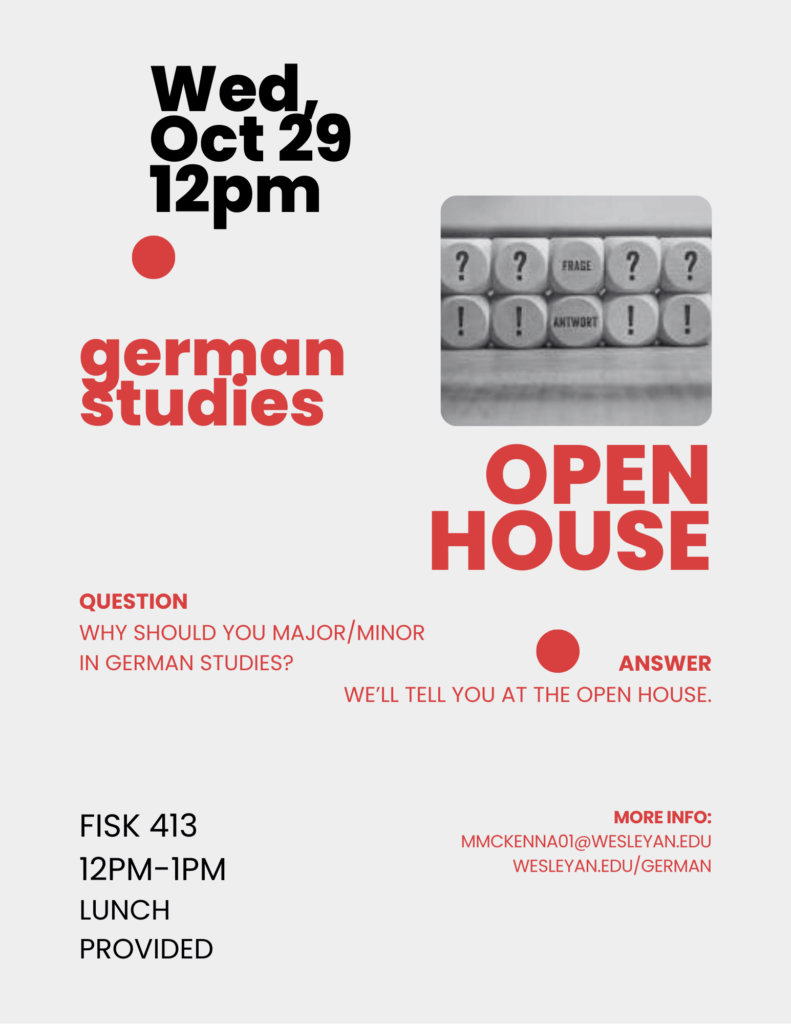
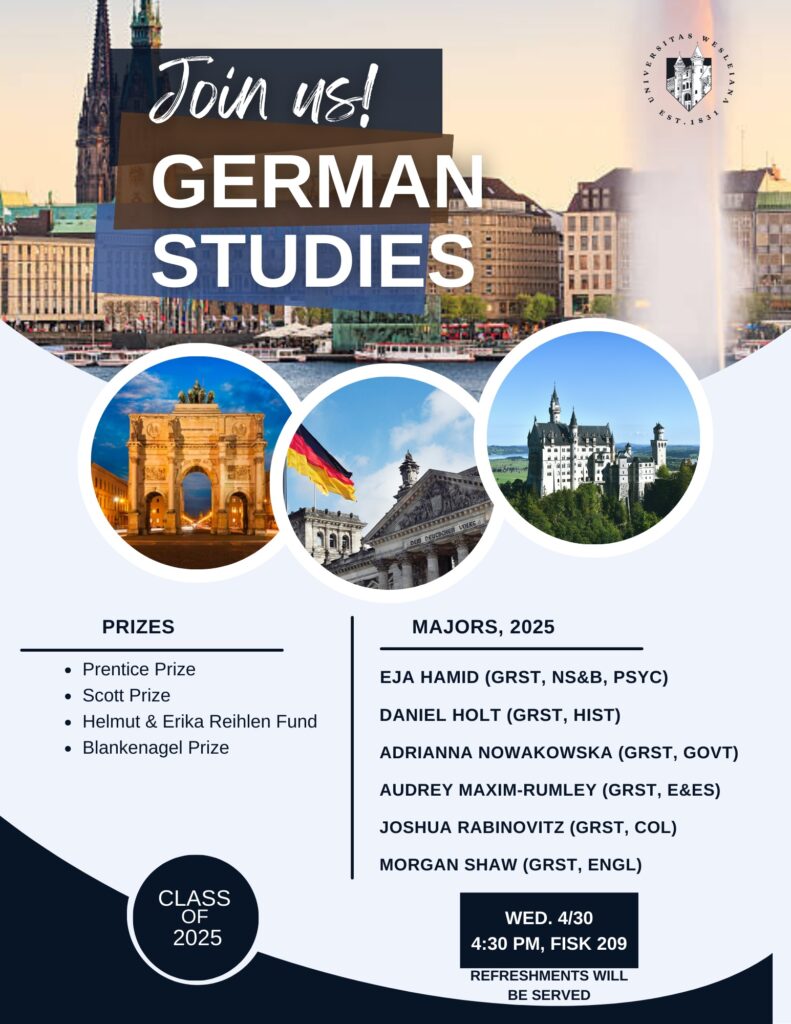
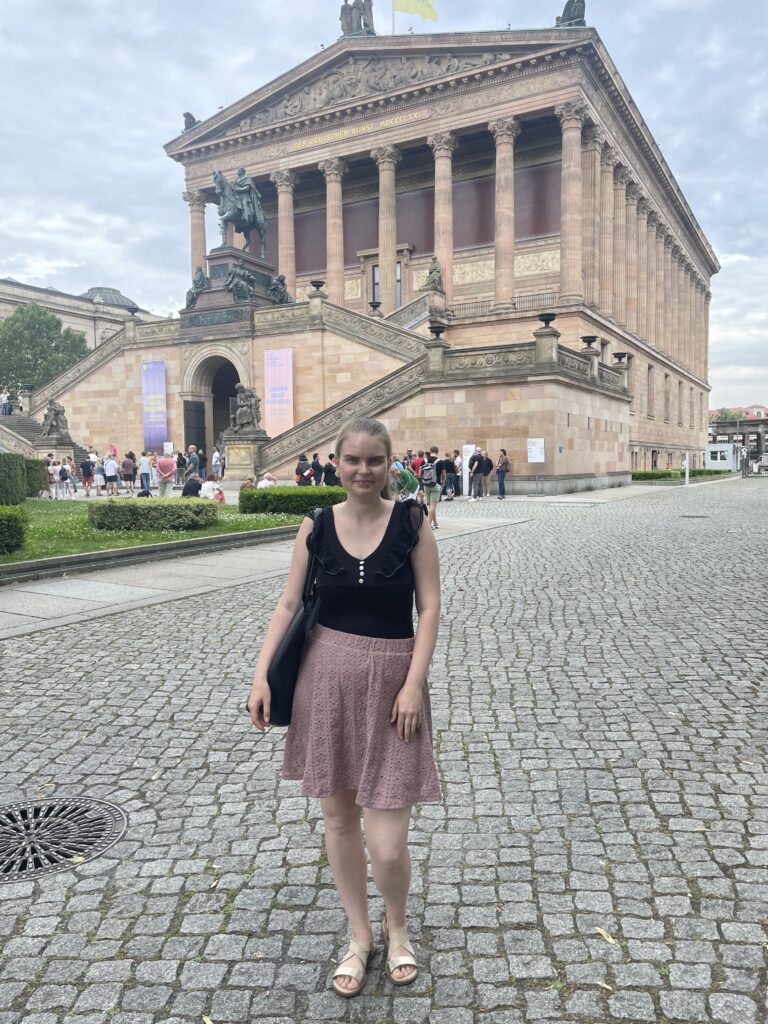
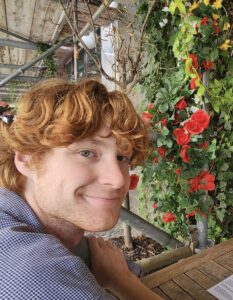
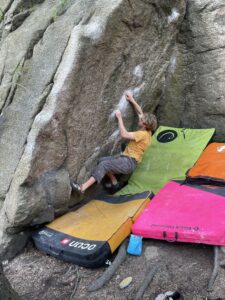
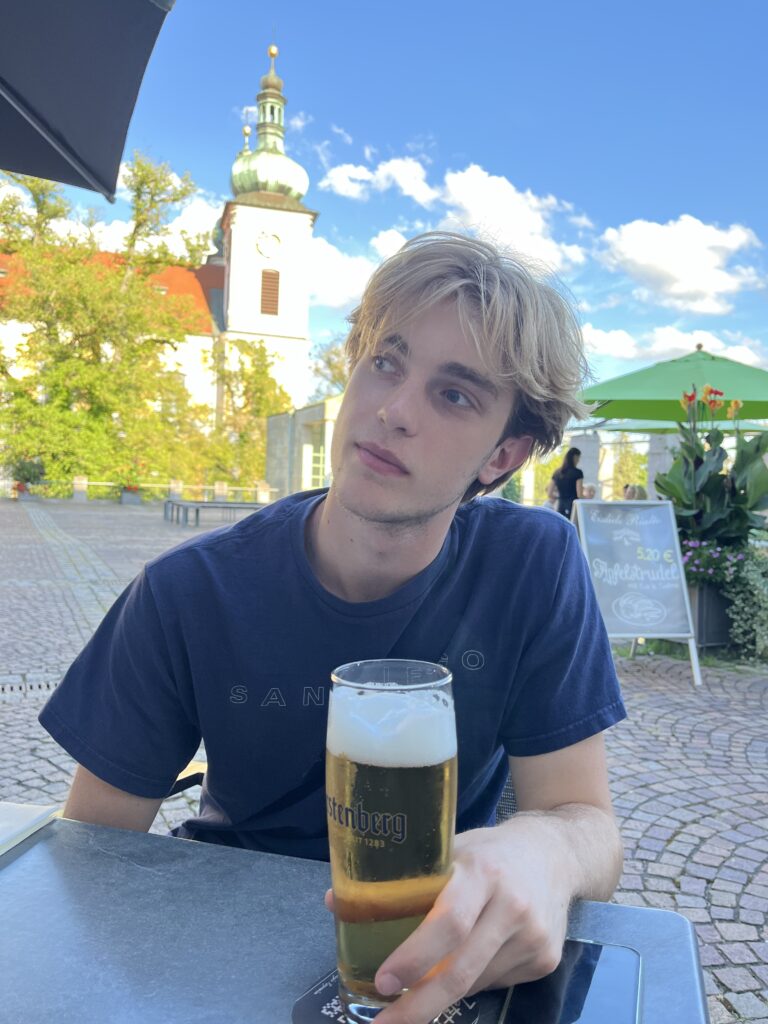
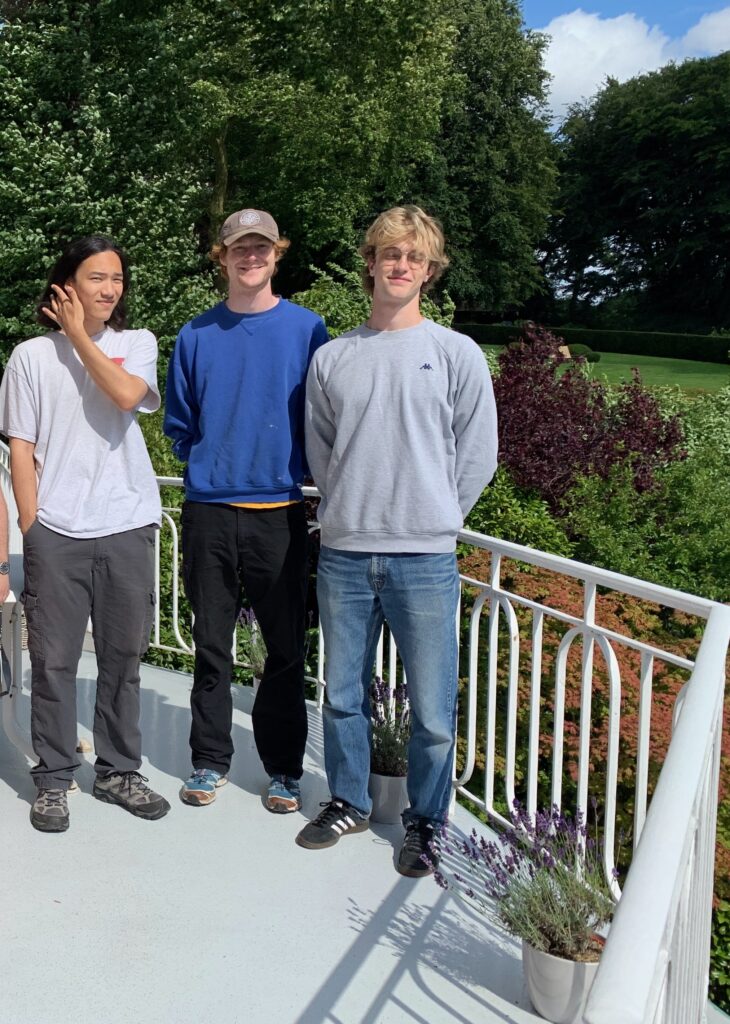
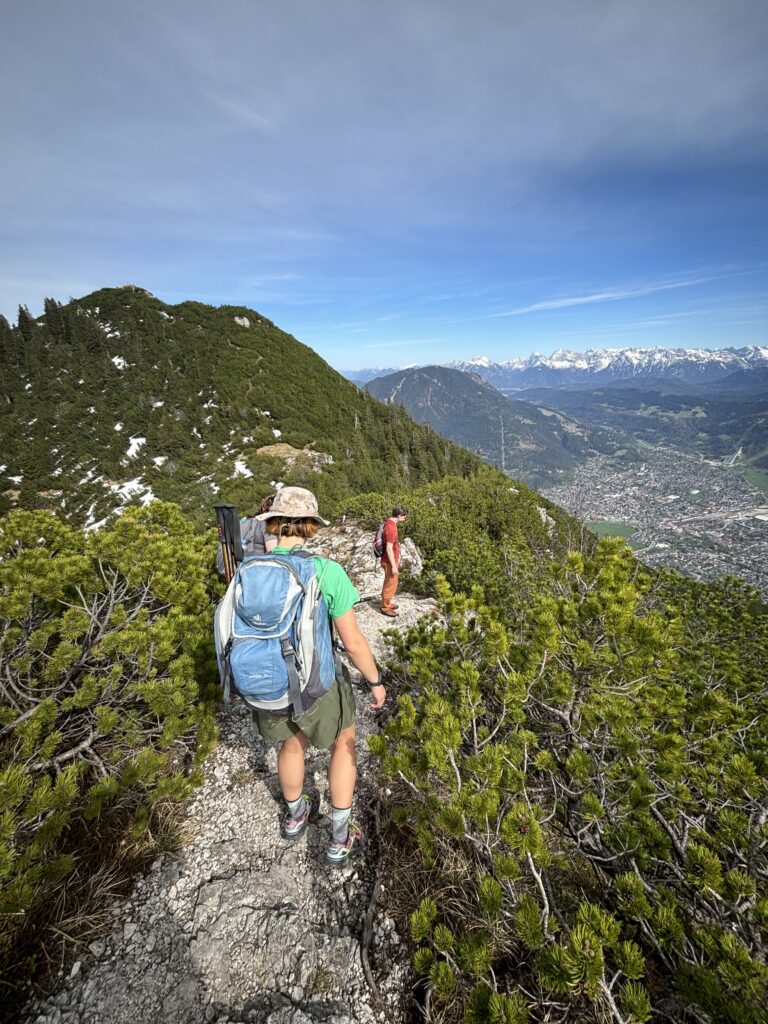
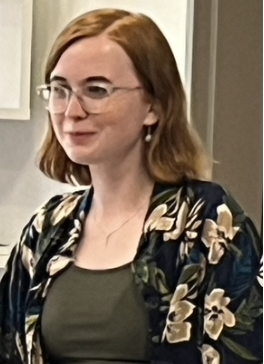
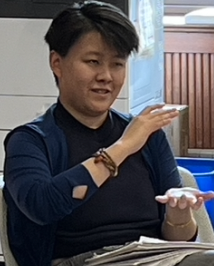
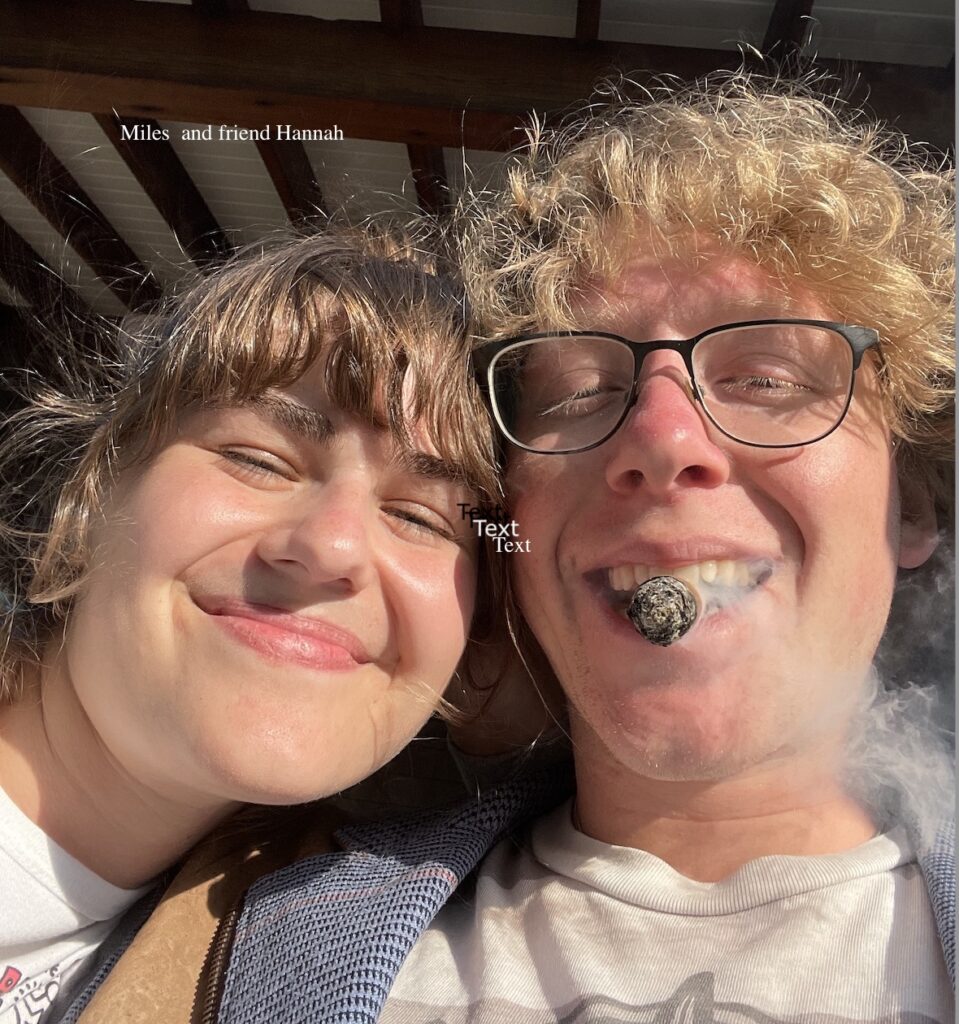
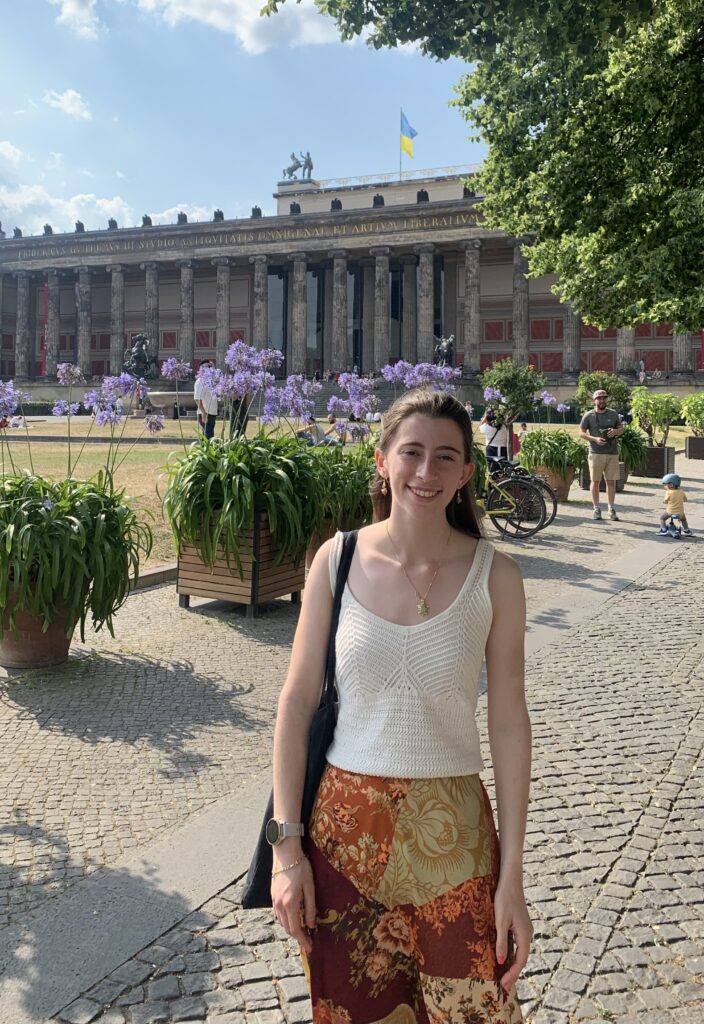
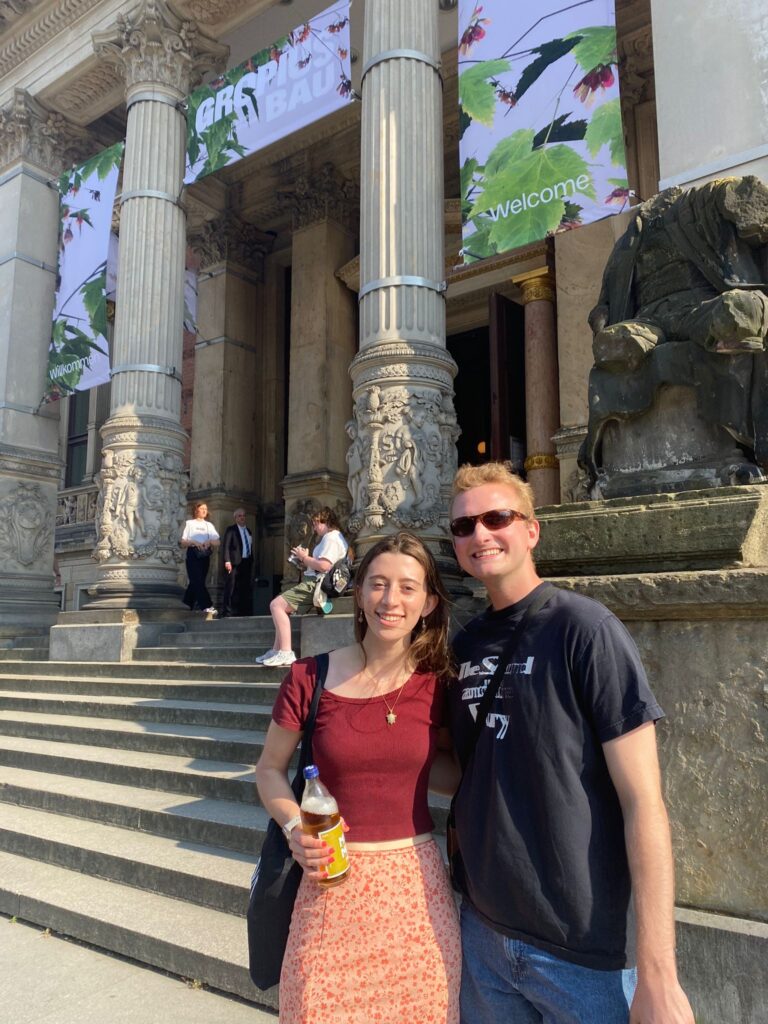
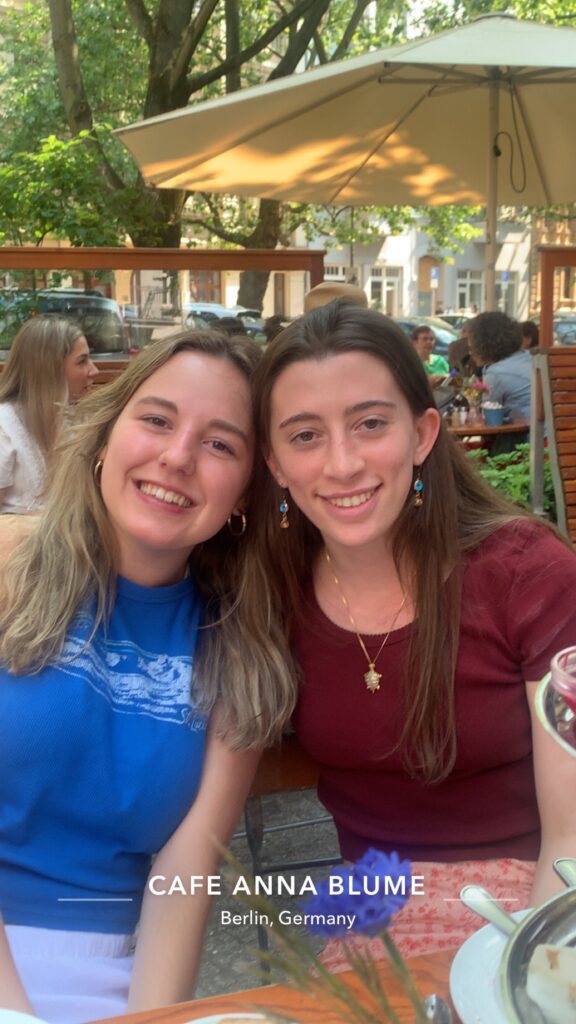
 and located next to Erik Blumenfeld Platz. The location was named after Erik Blumenfeld (1915-1997). As the son of a Jewish father and Danish mother, he was deported to Auschwitz in 1943. Luckily, he survived this death camp and returned to Hamburg. He became a German politician in the Christian Democratic Union (CDU), the German Bundestag, and the European Parliament.
and located next to Erik Blumenfeld Platz. The location was named after Erik Blumenfeld (1915-1997). As the son of a Jewish father and Danish mother, he was deported to Auschwitz in 1943. Luckily, he survived this death camp and returned to Hamburg. He became a German politician in the Christian Democratic Union (CDU), the German Bundestag, and the European Parliament.
 Near the local market, a memorial stone reminds us of eight young men from Blankenese who participated in the 1848 uprising of Schleswig-Holstein. In 1640, Blankenese had become part of the Duchy of Holstein, which was then reigned over by Danish kings for more than 200 years. In the mid-19th century, it was briefly ruled over by Austria, then by Prussia, and since 1938, Blankenese has been a district of Hamburg.
Near the local market, a memorial stone reminds us of eight young men from Blankenese who participated in the 1848 uprising of Schleswig-Holstein. In 1640, Blankenese had become part of the Duchy of Holstein, which was then reigned over by Danish kings for more than 200 years. In the mid-19th century, it was briefly ruled over by Austria, then by Prussia, and since 1938, Blankenese has been a district of Hamburg. Elbe on the Strandtreppe. At the bottom is the well-known Strandhotel famous for its two reliefs featuring Hermann and Dorothea from Goethe’s novel of the same title.
Elbe on the Strandtreppe. At the bottom is the well-known Strandhotel famous for its two reliefs featuring Hermann and Dorothea from Goethe’s novel of the same title.





 Anna Tjeveit’23, a GRST and ENGL double major, is currently studying at the University of Hamburg through the Smith in Hamburg study abroad program. After finishing her classes in July, she will use the generous funding from the German Studies Department’s Reihlen Fund to do research for her thesis, which is a novella focusing on nature conservation efforts in the GDR. Her novella focuses on a nature- conservation volunteer who struggles to reconcile her work with the government’s increasingly destructive environmental practices. Anna is interested in the way in which we as individuals process environmental destruction and in how concern for nature may or may not translate to political engagement. Through this project, she hopes to study East German perspectives towards nature and environmentalism while illuminating parallels between the GDR’s environmental movement and current international struggles against climate change. Anna will be visiting several cities in the former East-Germany.
Anna Tjeveit’23, a GRST and ENGL double major, is currently studying at the University of Hamburg through the Smith in Hamburg study abroad program. After finishing her classes in July, she will use the generous funding from the German Studies Department’s Reihlen Fund to do research for her thesis, which is a novella focusing on nature conservation efforts in the GDR. Her novella focuses on a nature- conservation volunteer who struggles to reconcile her work with the government’s increasingly destructive environmental practices. Anna is interested in the way in which we as individuals process environmental destruction and in how concern for nature may or may not translate to political engagement. Through this project, she hopes to study East German perspectives towards nature and environmentalism while illuminating parallels between the GDR’s environmental movement and current international struggles against climate change. Anna will be visiting several cities in the former East-Germany. New York Blood Center, helping blood donors recover and watching for adverse reactions. In addition, she will be volunteering at Staten Island University Hospital and an Assisted Living Memory Care facility where she will help run activities and visit patients. Starting in July, Yasemin will work as a teaching assistant for a bioinformatics course for high schoolers at Mt. Sinai Hospital in New York City. In her spare time, she plans to practice her German and read many German books. A good for site for practicing German is
New York Blood Center, helping blood donors recover and watching for adverse reactions. In addition, she will be volunteering at Staten Island University Hospital and an Assisted Living Memory Care facility where she will help run activities and visit patients. Starting in July, Yasemin will work as a teaching assistant for a bioinformatics course for high schoolers at Mt. Sinai Hospital in New York City. In her spare time, she plans to practice her German and read many German books. A good for site for practicing German is 


 John Sutherby ’23, a GRST and ECON double major, will be moving to New YorkCity this summer and attend the Deutsche Bank Internship Program in Investment Banking. He is excited about this opportunity as well as living in the Big Apple for the summer and returning for senior year! He is hoping to explore the city and do some weekend trips to New York State and Pennsylvania to do some fishing and hiking as well!
John Sutherby ’23, a GRST and ECON double major, will be moving to New YorkCity this summer and attend the Deutsche Bank Internship Program in Investment Banking. He is excited about this opportunity as well as living in the Big Apple for the summer and returning for senior year! He is hoping to explore the city and do some weekend trips to New York State and Pennsylvania to do some fishing and hiking as well!

 My master’s program is incredibly rigorous- in the first semester alone, I must complete seven classes (and I thought 5 Wesleyan classes was a full schedule: I now feel so naive). But the classes are taught by clinicians, diagnosticians, public health experts, and researchers studying diseases that I find incredibly fascinating, so I feel lucky to attend their lectures. There is a strong network of international students at my university, and I have been able to meet students from all over the world while we do activities like cooking, ice skating, and lantern making for St. Martin’s Day. Next weekend, I am travelling with our international group to Berlin.
My master’s program is incredibly rigorous- in the first semester alone, I must complete seven classes (and I thought 5 Wesleyan classes was a full schedule: I now feel so naive). But the classes are taught by clinicians, diagnosticians, public health experts, and researchers studying diseases that I find incredibly fascinating, so I feel lucky to attend their lectures. There is a strong network of international students at my university, and I have been able to meet students from all over the world while we do activities like cooking, ice skating, and lantern making for St. Martin’s Day. Next weekend, I am travelling with our international group to Berlin.


